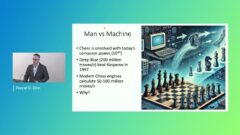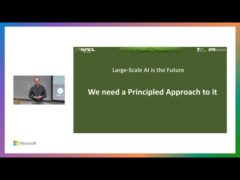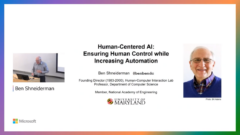Towards Verification of Behavioral Software Contracts
- David Van Horn | Northeastern University
The past two decades have seen two parallel trends in software development: the increased use of linguistic tools to rigorously ensure the reliability of software, and the rise of higher-order programming languages. A prominent strand within the former are Meyer-style contract systems, originally developed for the Eiffel programming language and now available in a range of languages, including Spec#. Contracts empower programmers to write important invariants of the components they develop and have these down invariants enforced at runtime. Over the past few years, MSR’s RiSE group has demonstrated that theorem provers can verify many of these contracts at compile time, supporting programmers as they create modules in their IDEs.
As research over the past decade has shown, contracts for higher-order languages pose novel challenges. These contracts are no longer simple boolean predicates on flat values but test objects and functions for infinitary properties. Reasoning about such properties calls for new approaches and technologies, and my talk will present a first solution. The approach extends symbolic execution to use behavioral contracts as symbolic values, thus enabling symbolic approximation of higher-order behavior. This work opens a path toward applying first-order verification techniques to a higher-order setting.
This is joint work with Sam Tobin-Hochstadt.
Speaker Details
David Van Horn is a Research Assistant Professor in the Programming Research Lab at Northeastern University. He received his PhD in 2009 from Brandeis University and from 2009 to 2011 he was a CRA Computing Innovation Fellow at Northeastern.
-
-
Jeff Running
-
-
Series: Microsoft Research Talks
-
Decoding the Human Brain – A Neurosurgeon’s Experience
- Dr. Pascal O. Zinn
-
-
-
-
-
-
Challenges in Evolving a Successful Database Product (SQL Server) to a Cloud Service (SQL Azure)
- Hanuma Kodavalla,
- Phil Bernstein
-
Improving text prediction accuracy using neurophysiology
- Sophia Mehdizadeh
-
Tongue-Gesture Recognition in Head-Mounted Displays
- Tan Gemicioglu
-
DIABLo: a Deep Individual-Agnostic Binaural Localizer
- Shoken Kaneko
-
-
-
-
Audio-based Toxic Language Detection
- Midia Yousefi
-
-
From SqueezeNet to SqueezeBERT: Developing Efficient Deep Neural Networks
- Forrest Iandola,
- Sujeeth Bharadwaj
-
Hope Speech and Help Speech: Surfacing Positivity Amidst Hate
- Ashique Khudabukhsh
-
-
-
Towards Mainstream Brain-Computer Interfaces (BCIs)
- Brendan Allison
-
-
-
-
Learning Structured Models for Safe Robot Control
- Subramanian Ramamoorthy
-
























